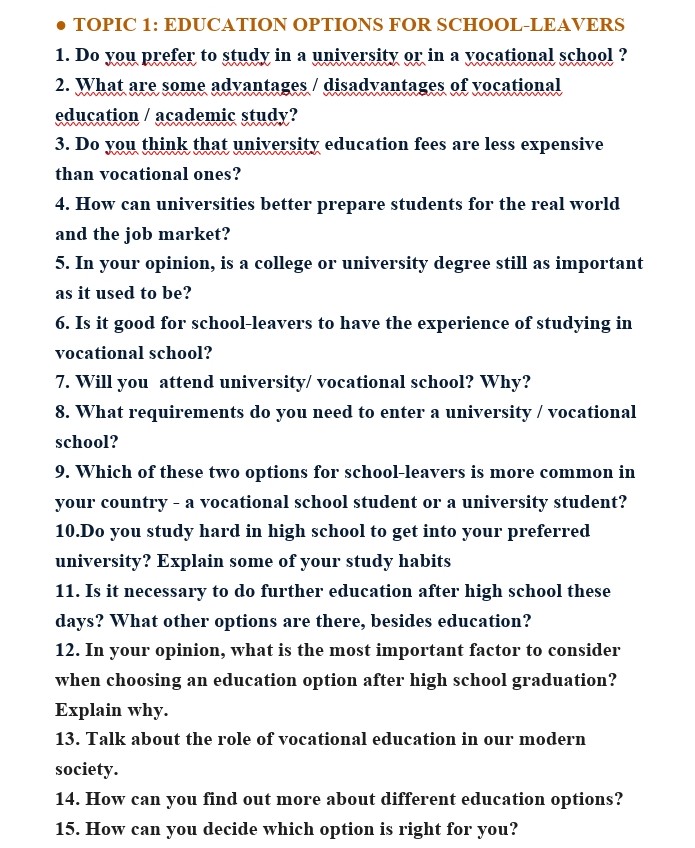

10/04/2024


Làm sao để có câu trả lời hay nhất?
- Luôn có GIẢI THÍCH các bước giải
- Không copy câu trả lời của Timi
- Không sao chép trên mạng
- Không spam câu trả lời để nhận điểm
- Spam sẽ bị khóa tài khoản



10/04/2024

10/04/2024

1. Personally, I believe that it depends on the individual and their career goals. University education tends to focus more on theory and research, while vocational schools provide hands-on training for specific skills.
2. Advantages of vocational education include specialized training for in-demand jobs, shorter duration of study, and direct preparation for the workforce. On the other hand, academic study in universities offers a broader educational experience, critical thinking skills, and potential for higher earning potential with a degree.
3. In general, university education fees are often higher than vocational school fees. This is due to the longer duration of study and the prestige associated with university degrees. However, it's essential to consider the potential return on investment in terms of future salary and career opportunities.
4. Universities can better prepare students for the real world and the job market by incorporating more practical, real-world experiences into the curriculum. This could include internships, co-op programs, industry partnerships, and career development resources. Additionally, offering courses on soft skills such as communication, teamwork, and problem-solving can enhance students' employability.
5. Despite changes in the job market and the rise of alternative education pathways, a college or university degree is still highly valued by employers in many industries. It demonstrates a level of commitment, discipline, and knowledge that can set candidates apart from others. However, the practical skills and experiences gained during education are equally important in today's competitive job market.
Đăng nhập hoặc Tạo tài khoản miễn phí!

 Điện thoại: 1900636019
Điện thoại: 1900636019
 Email: info@fqa.vn
Email: info@fqa.vn
LIÊN KẾT
- Hỏi đáp bài tập
- Giải bài tập SGK
- Cẩm nang
- Đề ôn luyện
- Điều khoản & chính sách
- Sitemap
- Liên hệ
- Đánh giá và góp ý
FQA.vn Nền tảng kết nối cộng đồng hỗ trợ giải bài tập học sinh trong khối K12. Sản phẩm được phát triển bởi CÔNG TY TNHH CÔNG NGHỆ GIA ĐÌNH (FTECH CO., LTD)
Copyright © 2025 fqa.vn All Rights Reserved












